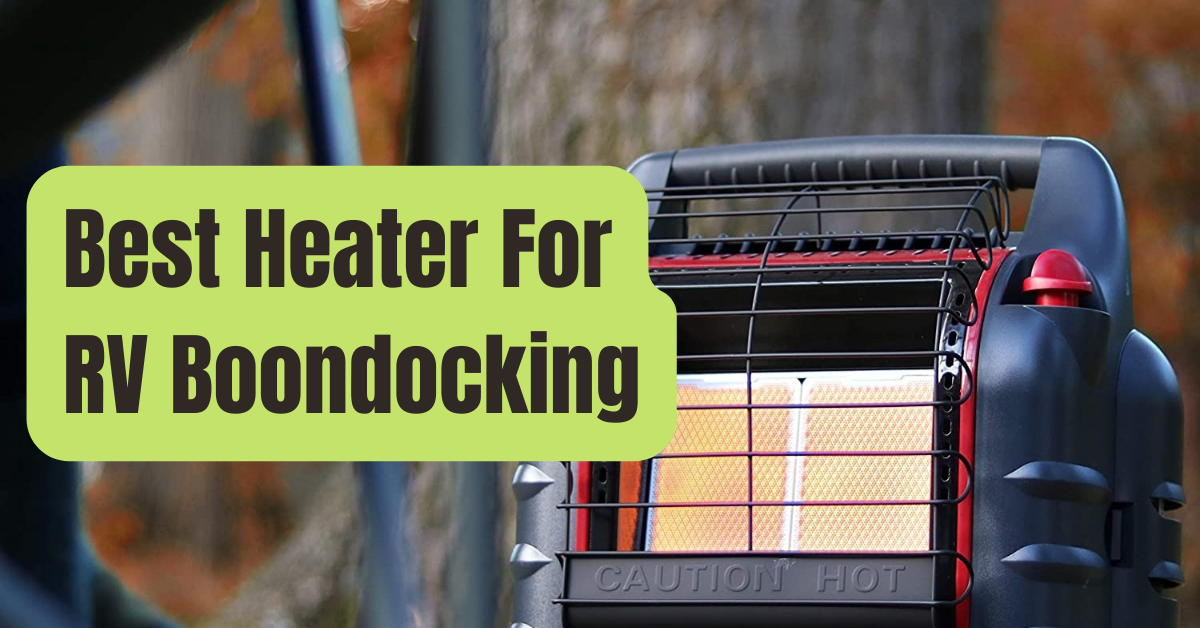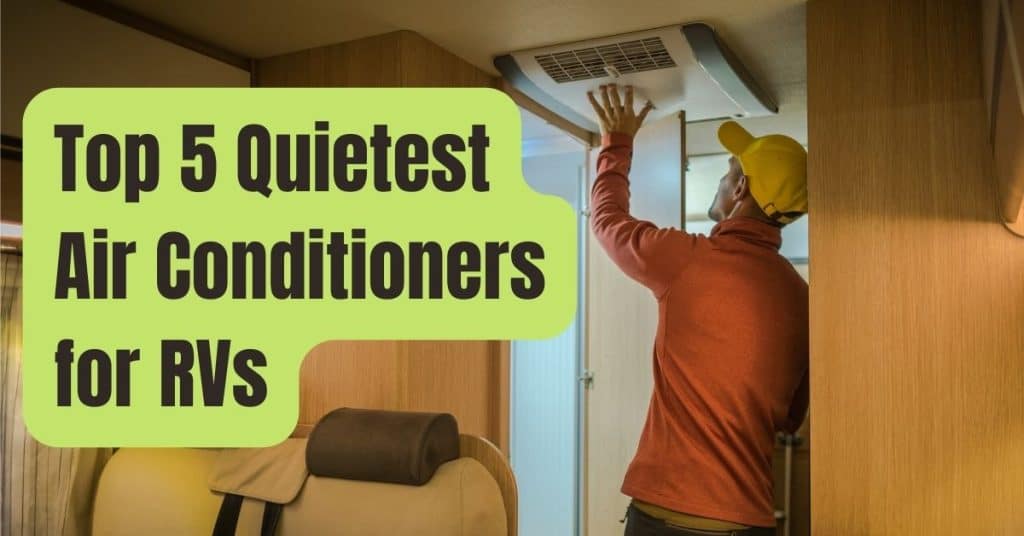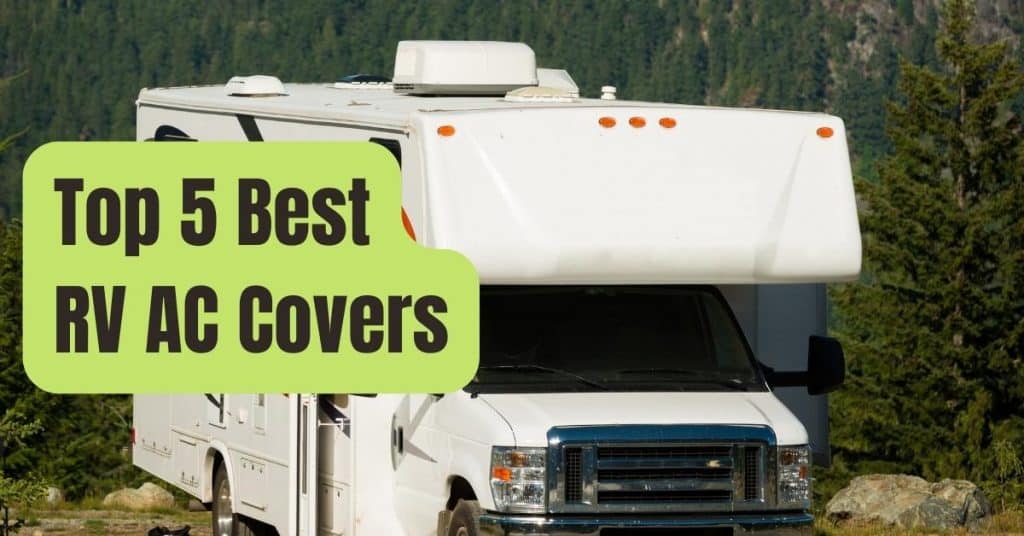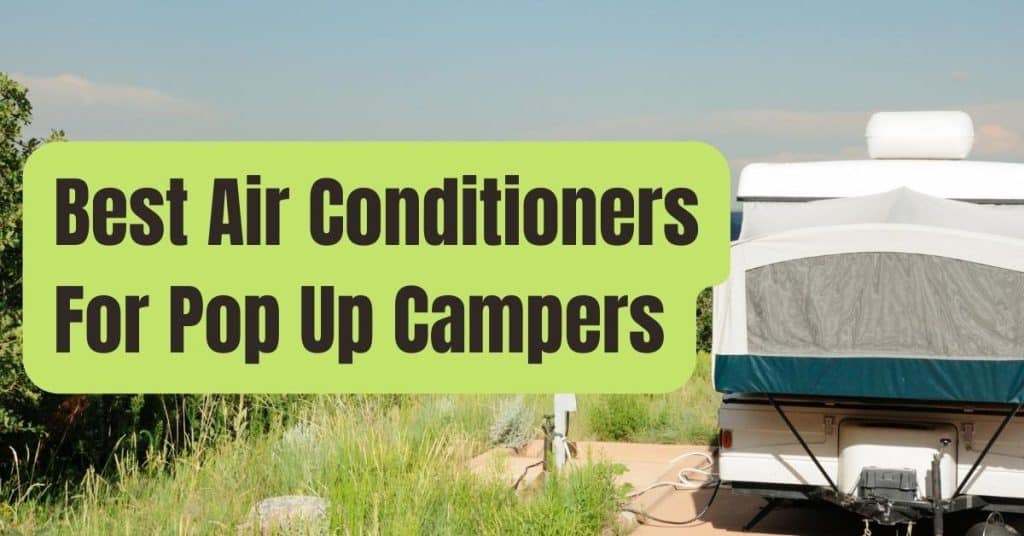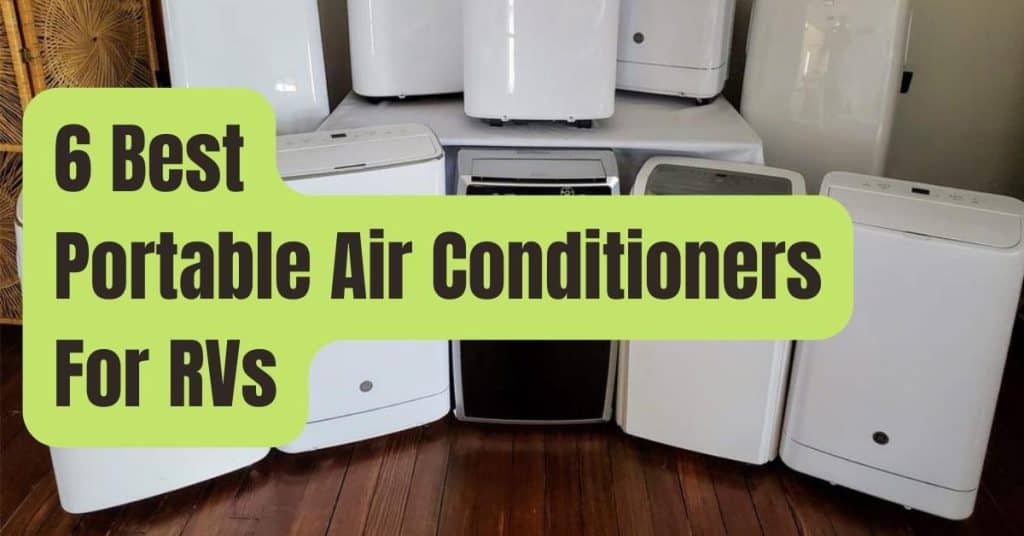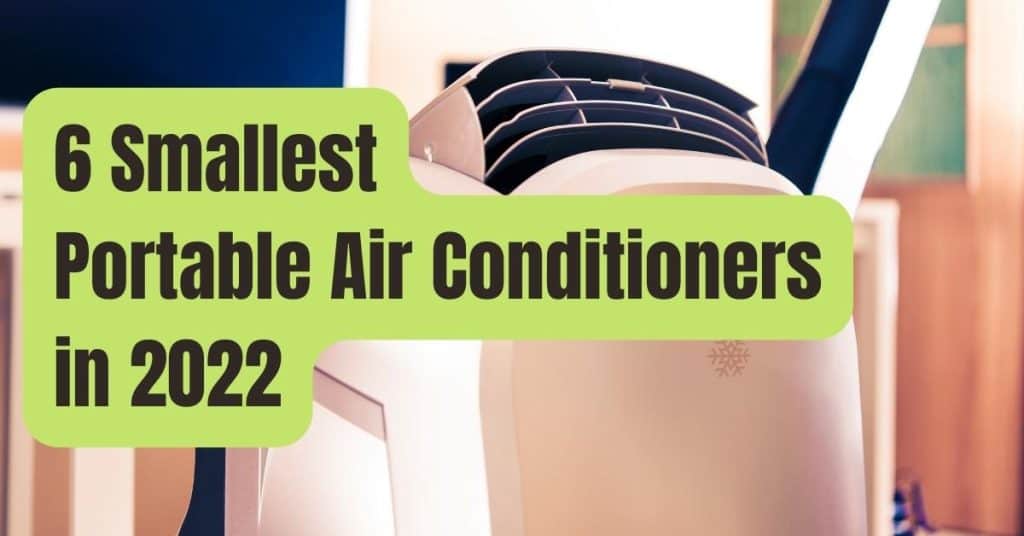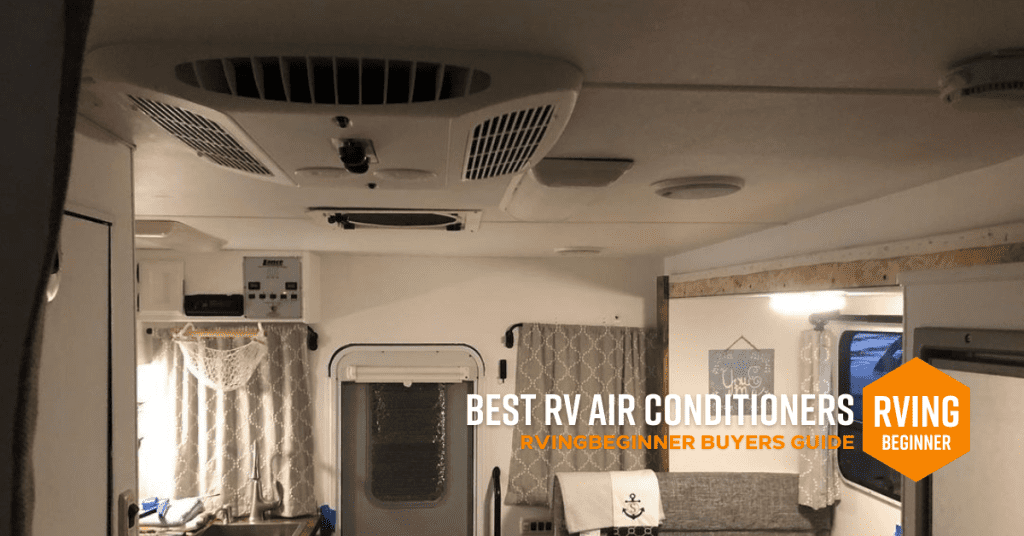An RV heater is a smart purchase if you often go winter RV camping.
Of course, the majority of RVs have a built-in furnace, but when camping in really cold weather, an electric or gas space heater complements (or serves as a backup emergency) that heat.
Or maybe you prefer to heat your RV when boondocking just with a portable heater.
Whatever your motivation for include a portable heater on your checklist for RV camping, be aware that not all models are created equal.
It’s crucial to get a heater for your RV that best meets your unique demands while RV camping.
The information you need to choose the finest RV heater for cold weather camping is right here.
RV Heaters to Buy in 2025
We’ve narrowed down your selections to just 7 of the finest portable RV heaters after researching a large number of them.
Our selections take into account each model’s usability, heat output, efficiency, portability, and robustness.
The following are our picks for the top 7 RV heaters in 2025:
#1. Mr.Heater’s Portable Buddy
The Portable Buddy is Mr. Heater’s mid-range portable propane heater, and it may be our favorite.
One of the most common choices for usage in tents, RVs and campers, as well as in stores, garages, and pretty much anyplace else you need to heat is this heater.
With little over 10 pounds, the Portable Buddy is comparatively lightweight.
It is portable thanks to a built-in handle.
Depending on the setting, it may provide 4,000 to 9,000 BTUs of heat and operates on propane.
It has a heating capacity of around 225 square feet and is highly efficient.
Both an oxygen depletion sensor and an automated tip-over shut-off switch are included.
What We Enjoy:
- Nearly 100 percent Effective
- High Heat Emission (Up to 9,000 BTUs)
- Integrated Safety Features
Why We Dislike It:
- Two heat settings only (High & Low)
#2. Lasko Ceramic Portable Heater
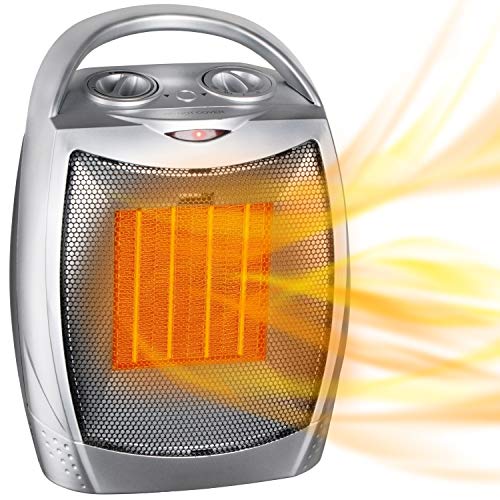
Not available
Our best electric heater for RV camping is this Lasko portable heater.
Because of its low weight and small size, this RV heater is not only exceedingly portable but also quite effective.
Its overall weight is just 3.5 pounds.
The Lasko 754200 is unique for having a ceramic element that is 1,500 watts.
It has 11 various heat settings so you can get the temperature just right.
Additionally, you may fine-tune the heating activity with the help of the 3 fan settings.
It has built-in safety features including an overheat prevention system and a cool-touch exterior.
What We Enjoy:
- Lightweight
- Additionally, there are three fan settings.
- Heats Up Very Fast
Why We Dislike It:
- Lack of a tip-over safety switch
#3. Mr. Heater’s Little Friend
The Mr. Heater Little Buddy is a powerful, compact portable heater.
Due to its compact size, effective heating, and several integrated safety measures, the propane-powered heater is perfect for RVs.
The Little Buddy has a single heat setting and generates 3,800 BTUs.
This is more than sufficient for radiant heat, even if we would want it to be more adjustable and have a larger heat output.
Both an automated tip-over shut-off switch and an oxygen depletion sensor are included into this Mr.
Heater gadget.
It only weights 5.85 pounds (not including the required propane canister).
What We Enjoy:
- Lightweight
- Plain Design
- Integrated Safety Features
Why We Dislike It:
- Compared to other propane heaters, less powerful
#4. Camco Olympian Wave 8 Catalytic Heater
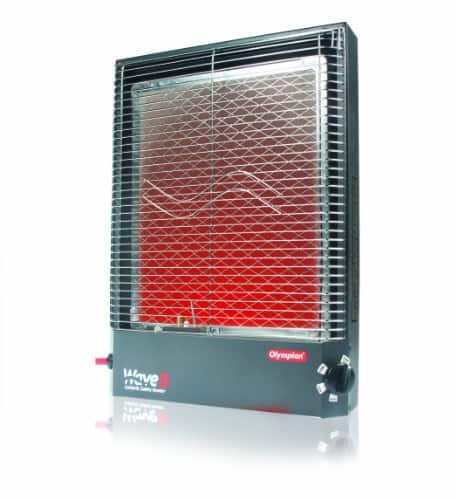
The Camco 57351 Olympian Wave 8 Catalytic Heater is another another outstanding catalytic heater from Camco.
Because it can also be used as a portable space warmer, this RV heater is special.
Alternately, you might mount it permanently in your RV on a wall or cupboard.
Please be aware that wave heaters like this one need low pressure gas to function.
This is one of the most economical alternatives now available because to its exceptional efficiency (around 99.9 percent fuel economy).
Another significant feature of the Camco Olympian is its completely adjustable heat settings, which have a maximum BTU output of 8,000 per hour.
An automated safety shut-off valve is included.
What We Enjoy:
- Exceptionally Effective
- Can Be Wall-Mounted or Portable
- Operation that is almost silent
Why We Dislike It:
- Expensive
#5. Mr. Heater Big Buddy
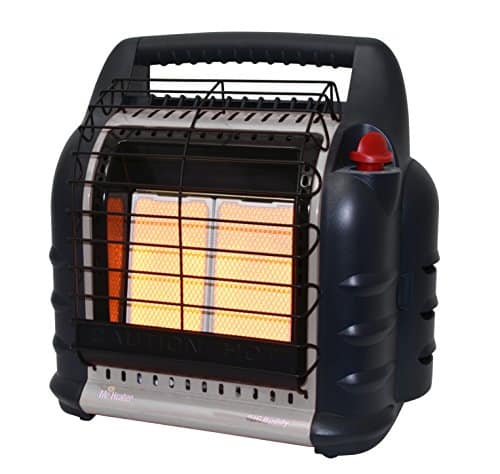
Not available
When it comes to propane heaters for RVs, The Big Buddy is Mr.
Heater’s biggest and most potent model.
This gas heater weighs just 16.7 pounds (not counting the propane canister), yet having a powerful motor.
Although it has two extra lower settings, its highest heat output is 18,000 BTUs per hour (4,000 BTUs on low and 9,000 BTUs on medium).
One of the safest heaters for RVs is the Mr. Heater Big Buddy.
Both an oxygen depletion sensor and an automated tip-over shut-off switch are included.
It goes without saying that because your RV uses propane as a heater, it must be adequately ventilated while in operation.
You can be confident that this heater will keep your RV toasty warm since it is designed to heat areas up to 450 square feet.
What We Enjoy:
- High Heat Emission
- Three Heat Levels
- Integrated Safety Features
Why We Dislike It:
- Not as flexible as other models
#6. Dr. Infrared Portable Space Heater
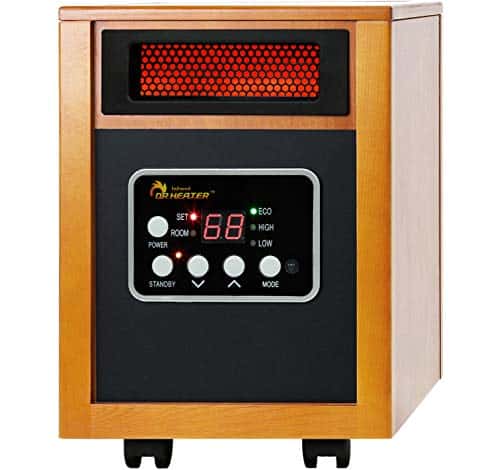
Not available
The Dr. Infrared Portable Space Heater is a fashionable heater for RVs that works well.
The use of infrared heat makes this electric heater special.
In essence, this kind of heat heats things instead of the air around them.
The heater itself doesn’t become hot or even warm with the exception of the little fan portion, which is notable about this kind of heating.
This makes it one of the finest RV heaters for families with kids or pets, along with the strong construction.
Another distinctive feature of this Dr. Infrared heater is that it has a thermostat built right in.
Simply said, you may adjust the heater so that it maintains a certain temperature within your RV.
This feature is absent from the majority of other RV heaters.
The highest output of this heater is 1,500 watts, although it has complete adjustment for heating at lower temperatures.
What We Enjoy:
- Fully Modifiable
- Internal Thermostat
- Safe and robust design
Why We Dislike It:
- More Space-consuming Than Other Models
#7. DeLonghi Radiator Space Heater
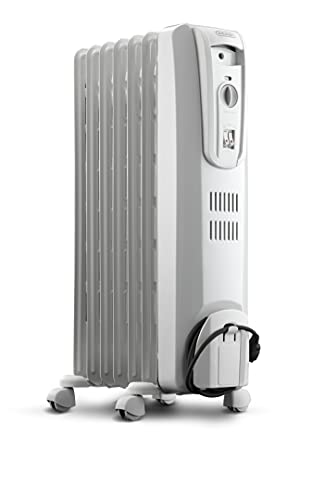
Not available
Despite offering a wide selection of radiator space heaters, DeLonghi’s TRH0715 is among the finest for RVing.
This radiator warmer with oil in it works well.
Naturally, it’s also strong.
With 1,500 watts of power, it offers a high maximum heat output of 5,120 BTUs.
To reach the precise temperature you like in your RV, it is completely adjustable.
The heater is one of the finest for RVs and is rather small.
You may relax knowing that there are many built-in safety mechanisms, including a heat shutdown and an antifreeze setting.
The heater can heat up to 250 square feet of room.
What We Enjoy:
- 1,500-Watts
- Different heat settings
- A programmable thermostat
Why We Dislike It:
- Operation That Is Generally Loud
Various RV Heater Types

Electric heaters and propane heaters are the two primary categories of portable devices available, apart from built-in warmers like RV furnaces.
Here is a description of each type:
#1. Portable Electric Heater
Your RV’s electrical system is needed to power an electric space heater.
Ceramic heaters, infrared heaters, and oil-filled heaters are just a few of the varieties that are offered.
Electric RV heaters are simple to operate and efficient, even if you must have a connection to shore power, a battery, or another power source.
They perform well while you are in a campground or RV park with power connections, but they fall short when it comes to basic camping, like boondocking.
#2. Portable Propane Heater
Propane is often the fuel source for gas space heaters.
These propane-powered RV heaters are surprisingly effective.
In fact, they often cost less to operate than electric heaters.
The drawback is that running them requires a consistent supply of propane.
The biggest difficulty with propane heaters, besides the need to replenish fuel, is the possibility of safety problems.
However, when used in conjunction with ventilation (break a window) and a carbon monoxide monitor, the finest indoor versions are really fairly safe.
If dry camping is your thing, propane RV heaters are often your best option.
Guide on Buying RV Heaters

No one RV heater is the best for everybody.
The ideal model for you is determined by your unique demands and preferences.
Here are a few of the most crucial factors to take into account:
#1. Class of RV
Before purchasing an RV heater, take into account the size and kind of your vehicle.
Naturally, a bigger RV needs a stronger heater (unless you only want to heat a closed off space).
Consider your RV’s built-in furnace or heater as well.
For instance, certain trailers, such as pop-up campers, don’t have any kind of built-in heating system.
#2. Anticipated Weather
A more powerful heater is required while RV camping in really cold weather.
If you’re staying someplace without shore electricity, this is particularly true.
A strong emergency heater is necessary for boondocking in chilly climates.
However, if you’re camping in a moderate climate, you may just need a modest RV heater with a modest heat output.
#3. Design of Camping
As was already noted, deciding whether you often camp with or without RV hookups is important when choosing an RV heater.
An RV electric heater is a more practical option since utilities are nearby, but many dry campers prefer a fuel-powered portable heater.
#4. Level of Comfort
In any case, how warm do you like it? A more potent heater is essential if you like staying warm inside your RV.
You definitely don’t need anything nearly as potent if all you want to do is fend off the cold and are content to cover yourself in a blanket and a sweatshirt.
#5. You’re Budget
You should not only get a heater that fits within your budget but is also strong enough to meet your demands.
If a heater isn’t the correct type for you, don’t purchase it simply because it’s inexpensive!
How to Use an RV Heater Safely

You may use electric and gas heaters inside your RV without risk.
But in order to avoid potentially fatal mishaps, it’s imperative to utilize them properly and cautiously.
If used improperly, RV heaters of both sorts may be deadly.
Here are the most crucial safety advice for RV heaters:
#1. Purchase A Model With Safety Attributes
The finest RV heaters have security measures already in place.
An automated tip-over shut-off switch is crucial.
A pressure-sensing shut-off switch, an oxygen depletion sensor, and a high-limit shut-off switch are further typical safety measures.
#2. Keep Flammable Items Out Of The Path
Make sure that anything that might catch fire is far from your heater.
Whether your heater is electric or propane, be cautious not to let it contact blankets, clothes, or other potentially dangerous items.
#3. Position on a Robust Surface
To lessen the risk of tipping, set your RV heater on a level, sturdy surface at all times.
Additionally, avoid using your space heater while driving.
#4. Exercise Caution Around Kids and Animals
While the heater is running, keep an eye on your kids and pets.
As a result, there is less chance that the heater may tip over while in use.
Additionally, you’ll be faster to put it back upright if it gets knocked over.
#5. Avoid Using at Night
Personally, I avoid using space heaters overnight in my RV.
I like to use electric and propane versions to heat my room before going to bed and then cuddle up in a warm blanket during the night, even though many of them are suitable for overnight usage.
Then, in order to warm the room in the morning, I switch the heater back on.
#6. Use Carbon Monoxide And Smoke Detectors.
Keep your RV’s smoke and carbon monoxide detectors in good working order.
You need these tools to be safe when using an RV heater.
Regularly check the batteries and test your detectors.
#7. A Damaged RV Heater Should Never Be Used.
A night in the cold is preferable than taking a fire risk.
Damaged heaters are more likely to catch fire, particularly electric types with frayed cables.
Never use an RV heater that is broken.
Purchase a new model or try to fix the damaged one first.
Alternatives for RV Heaters

The best method to heat an RV in the winter is not necessarily with a portable space heater.
Other viable choices include:
#1. Industrial Heater
A heater is often fitted at the manufacturer in RVs.
This could work well to heat your RV, depending on the type.
- Direct Discharge – This style of RV furnace blasts hot air straight from the faceplate and is most frequent in older RVs.
- Ducted Discharge – This sort of RV furnace, which is becoming more and more popular on modern RVs, disperses air via ducts on the walls or ceilings of the RV rather than through the furnace itself.
A lot of RV furnaces work on both electricity and gas.
To utilize them efficiently, you often need to be hooked into a utility connection.
Of course, when dry camping, you may use your battery system and propane fuel supplies to power your RV heater for brief periods of time.
For RV camping, another alternative is to spend money on solar panels or a portable power source (such a generator).
An good tutorial on how to replace an RV heater is available at RV Share.
#2. Camper Wood Stove
In RVs and trailers, wood stoves are becoming more and more common.
The newest versions are highly safe even though they heat your RV with a wood-burning fire.
It truly doesn’t get much better than listening to a wood burner crackle while your RV keeps toasty warm in even the coldest weather, despite installation sometimes being a bit problematic.
One of the top wood stoves for RVs and other compact places is the Kimberly Wood Stove.
#3. Electric Throw
A good method to remain warm in your RV this winter, even if it’s not technically an RV heater, is using an electric blanket.
On the coldest evenings, use yours to complement the heat from your RV furnace or heater.
Of course, ordinary blankets, additional clothing, and other camping tips for winter will also keep you warm.
How Do You Feel?

Now that you are aware of my top picks for RV heaters for winter camping, I want to turn the conversation on to you.
How can you stay warm in a cold weather RV? When choosing between dry camping and a park with hookups, does your approach change? Do you now possess a portable RV heater or do you just depend on the furnace that is already installed in your RV?

